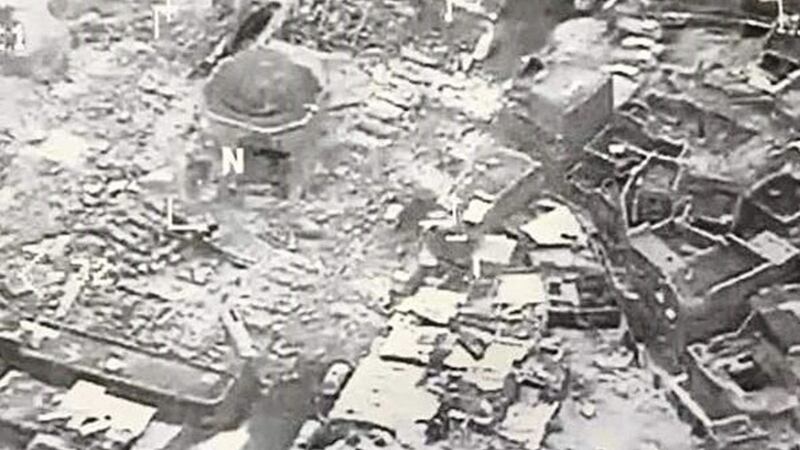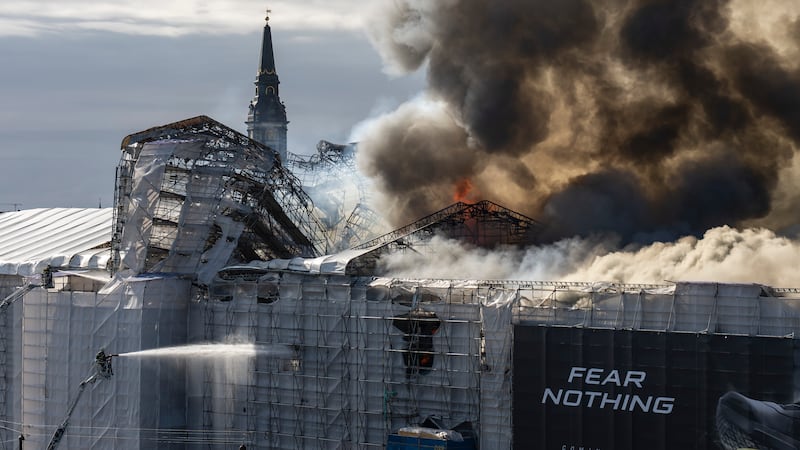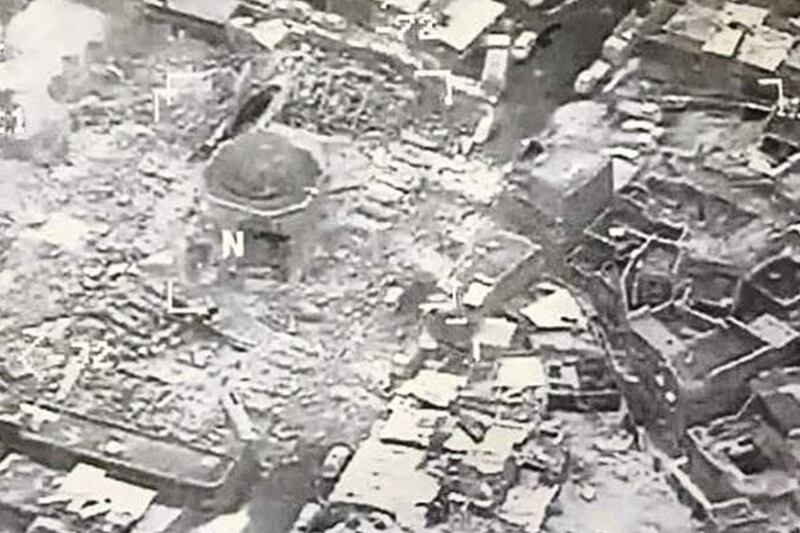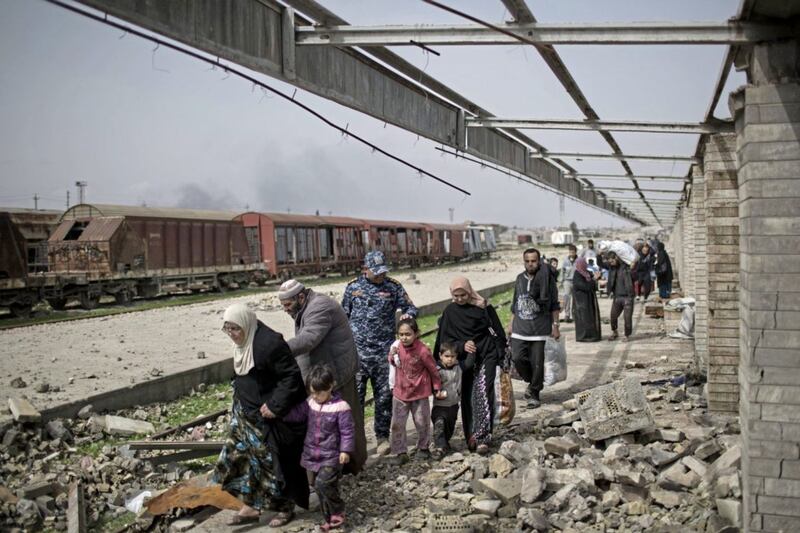Islamic State has blown up a historic landmark in Mosul, the city's famed 12th century al-Nuri mosque with its leaning minaret known as al-Hadba.
The explosion destroyed another piece of priceless Iraqi cultural heritage but also sent a strong message to US-led coalition forces and Iraqi troops closing in on the last stronghold of IS, in Mosul's Old City neighbourhood.
Iraq's ministry of defence said the militants detonated explosives planted inside the structures on Wednesday night.
Prime Minister Haider al-Abadi tweeted early on Thursday that the destruction was an admission by the militants that they are losing the fight for Iraq's second-largest city.
"Daesh's bombing of the al-Hadba minaret and the al-Nuri Mosque is a formal declaration of their defeat," Mr al-Abadi said, using the Arabic acronym for IS.
"It is a shock, a real big shock," Amir al-Jumaili, a professor at the Archaeology College in Mosul, said.
The al-Nuri mosque, which is also known as Mosul's Great Mosque, is where IS leader Abu Bakr al-Baghdadi made a rare public appearance, declaring a so-called Islamic caliphate in the summer of 2014, shortly after Mosul was overrun by the militants.
The minaret that leaned like Italy's Tower of Pisa had stood for more than 840 years.
IS blew up the mosque during the celebrations of Laylat al Qadr, the holiest night of the year for Muslims.
The 'Night of Power' commemorates the night the Koran was revealed to the Prophet Mohammed during the Muslim holy month of Ramadan, which is now under way.
An IS statement posted online shortly after the ministry of defence reported the mosque's destruction blamed an air strike by the United States for the loss of the mosque and minaret.
The US-led coalition rejected the IS claim.
US army spokesman Colonel Ryan Dillon said coalition planes "did not conduct strikes in that area at that time".
IS fighters initially attempted to destroy the minaret in July 2014.
The militants said the structure contradicted their fundamentalist interpretation of Islam, but Mosul residents converged on the area and formed a human chain to protect it.
IS has demolished dozens of historic and archaeological sites in and around Mosul, saying they promoted idolatry.
Earlier this month, Mosul residents reported IS fighters had begun sealing off the area around the mosque.
Residents said that IS fighters ordered families living in the area to leave - probably in preparation for the militants' final stand.
"This is a crime against the people of Mosul and all of Iraq, and is an example of why this brutal organisation must be annihilated," US Major General Joseph Martin, the commander of coalition ground forces in Iraq, said in a written statement.
"The responsibility of this devastation is laid firmly at the doorstep of Isis," he added. Isis is another acronym for IS.
The mosque sat at the heart of the Old City, the last IS stronghold in Mosul.
Iraqi forces launched a push into the Old City earlier this week, but have made slow progress as the last IS fighters there are holed up with an estimated 100,000 civilians, according to the United Nations.
Brett McGurk, the US envoy for the global coalition against IS, also criticised the destruction, describing it as "a very significant moment", in comments at an annual security and policy conference in Herzliya, Israel.
"Late yesterday, as Iraqi security forces closed in on that mosque about a hundred metres away, Isis blew it up, a mosque that sat there since the 12th century, Isis blew it up," Mr McGurk said.
The fight to retake Mosul was launched more than eight months ago and has displaced more than 850,000 people.
While Iraqi forces have experienced periods of swift gains, combat inside the city has largely been gruelling and deadly for both Iraqi forces and civilians.
Mr Al-Jumaili said he long feared the destruction of the mosque and minaret was inevitable.
"It was the last icon for the historic city of Mosul and a valuable symbol," he said.
"I am sure Mosul residents could not sleep last night."




